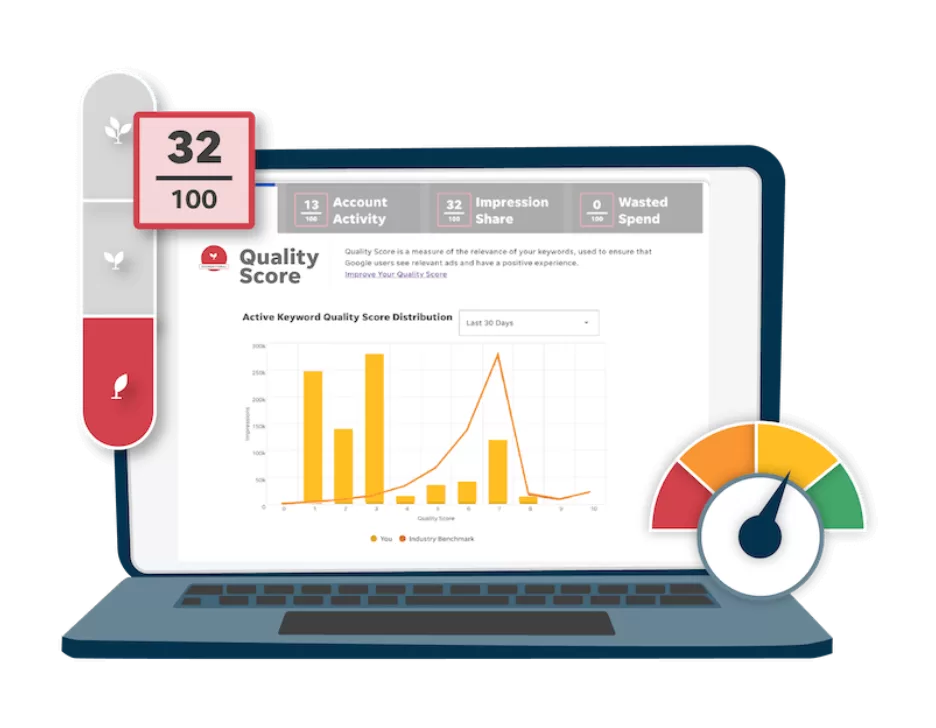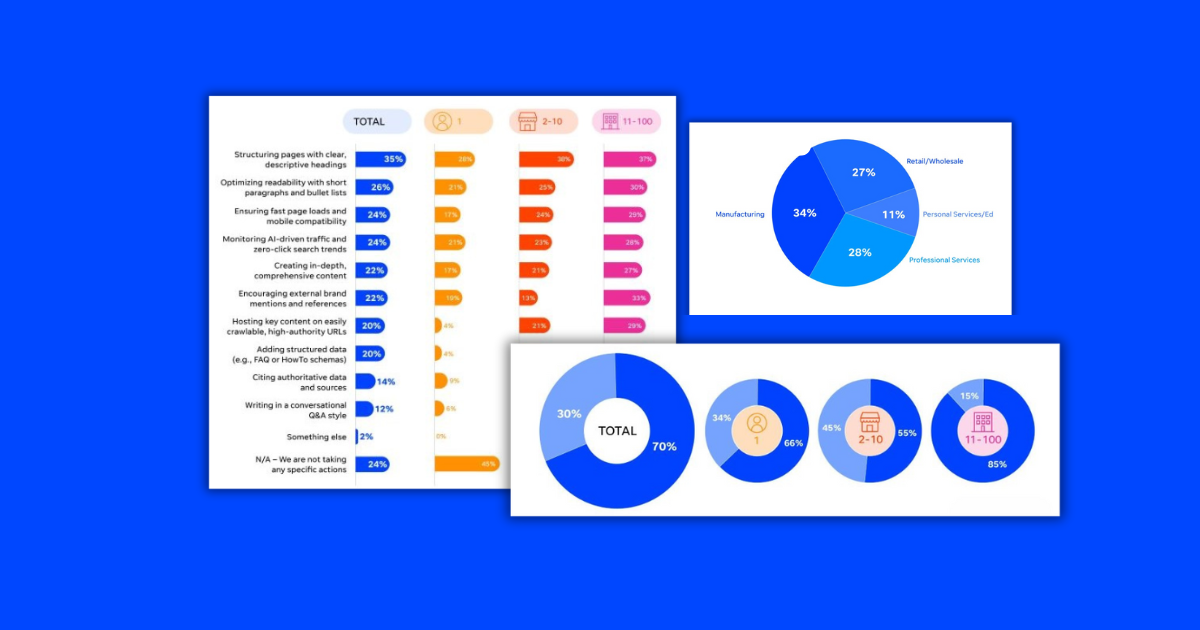Does your business get a lot of the same questions? Are there pieces of information you wish you could easily share with your audience or potential customers? Do you want an easy way to rank for questions related to your business? If you answered “Yes!” to any of these questions, an FAQ page is for you!
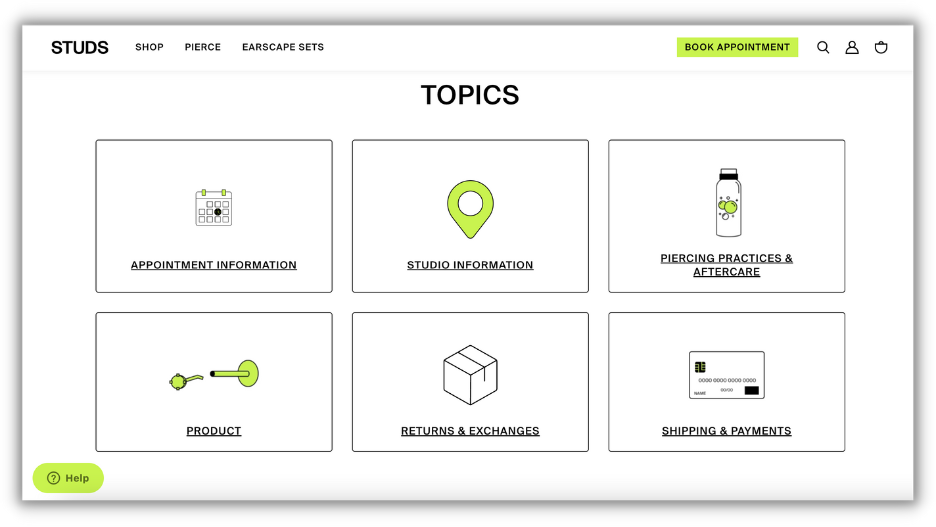
An FAQ page does more than the obvious–answer questions your business frequently receives from customers. It also builds trust with your audience and has SEO benefits for your website. Basically, if your business doesn’t have an FAQ page on your website, you need to add one–STAT.
In this post, we’ll be answering all your FAQs about FAQ pages, including:
- What is an FAQ page?
- Why you should create an FAQ page?
- How to create an FAQ page?
- What are the best FAQ page examples?
Let’s dive in!
What is an FAQ page?
An FAQ page is a place on your small business website dedicated to answering questions your team regularly receives about your business. Your FAQ page can include various questions, from nuts-and-bolts asks (like your store hours) to objections you often hear from prospects.
In this example from Italian specialty grocer and restaurant Eataly, the page about online shopping answers many logistical questions folks might have about placing an order. The page covers straightforward questions about the ordering process, from how to cancel an order to where to track shipments.
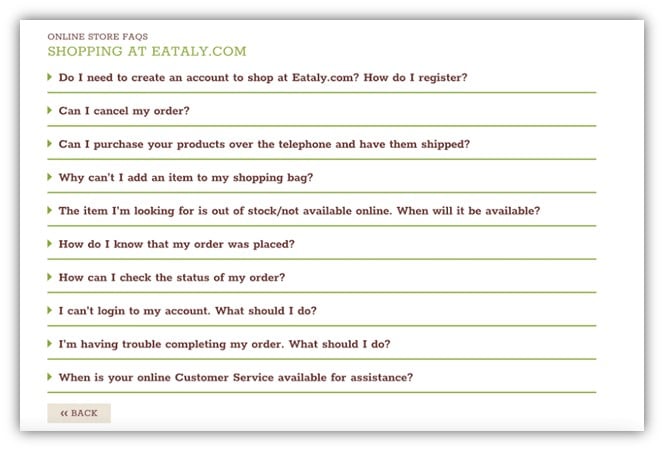
For an example of frequently asked questions focused on customer objections, let’s look at the cosmetic brand Fresh. Its FAQ page addresses questions about product safety and animal testing. For consumers who are passionate about animal welfare, knowing that Fresh does not test products on animals could be the final piece of information they need to feel confident in making a purchase.
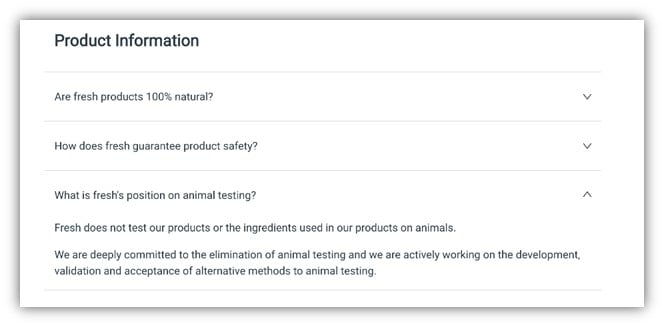
Benefits of creating an FAQ page
As you can see from the examples above, an FAQ page is a low-touch way to move prospects down the sales funnel.
1. Creates a positive customer experience
A well-crafted FAQ page anticipates any needs or questions a prospect might have. It shows them that you’re thinking about their journey and are clued into what they expect from a brand. It’s one more way to improve customer communications.
2. Frees up your sales team while moving prospects down the sales funnel
It also reduces the burden on your sales or customer service teams. When prospects can easily find your return policy on your FAQ page, they don’t need to call your team to ask about it before making a purchase. This frees up your team to focus on the more obscure or in-depth questions–ones that need greater attention and care.
3. Boosts SEO
Outside of the benefits to customers and your employees, an FAQ page also provides your brand with SEO benefits. When written correctly, an FAQ page helps you rank for terms relevant to your business. The question-and-answer nature of the pages makes the content a great source of potential Google-featured snippet results.
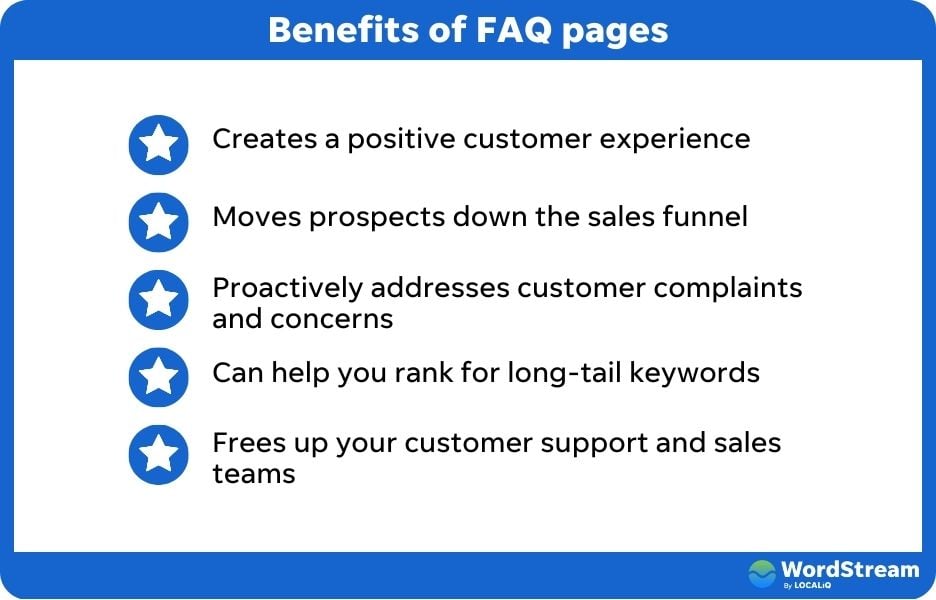
How to create an FAQ page
Are you ready to build your own FAQ page? Follow these steps.
1. Start with a brainstorming session
Ask your team to create a list of questions about your business and offerings. Get your salespeople or customer service team involved! These folks are on the front lines with customers every day, making them an incredible resource. What questions do they hear over and over from prospects and customers?
You may also consider surveying existing customers. Ask what led them to choose your brand over competitors. Their feedback may help you generate questions to include on your FAQ page.
Let’s say you run a restaurant and decide to survey some of your regulars. They share that they love the relationship you have with local farms. Armed with this knowledge, you can create a section of your FAQ page detailing your ingredient sources.
Finally, check out the competition. Do other brands in your space already have FAQ pages? If so, use their questions as inspiration when you’re coming up with a list of your own.
You can also incorporate some local keyword research here by identifying long-tail keyword phrases that potential customers are already searching for.
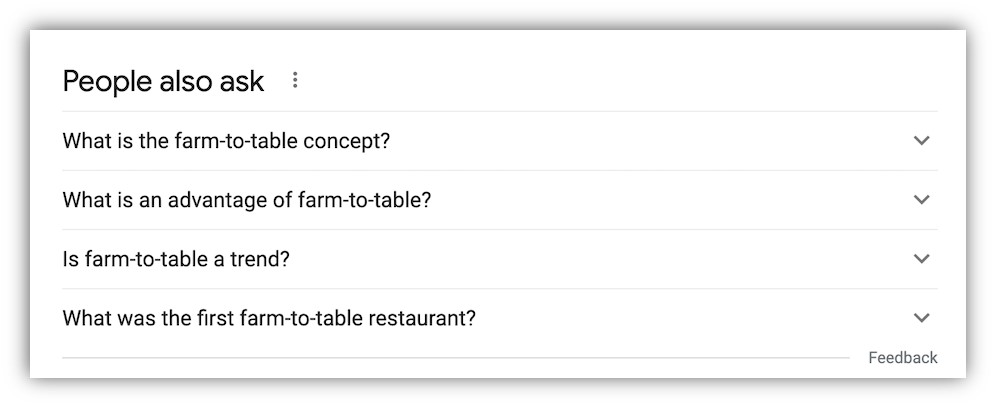
You can use the People also ask snippet on Google to see what questions people are asking related to your business or industry.
Download now >> The Big, Easy Guide to Keyword Research
2. Edit your questions
Now that you have a lengthy list of potential questions for your FAQ page, it’s time to pare things down. Cross off more obscure questions. Think of ways to combine similar questions into one entry.
Remember that the first letter in FAQ stands for “frequently.” You don’t need to answer every conceivable question on your FAQ page. Keep it focused on the questions your team hears every week.
The length and complexity of your list of questions should mirror the complexity of what you sell. A bakery doesn’t need a 75-question FAQ page, but a consulting firm that services various industries might.
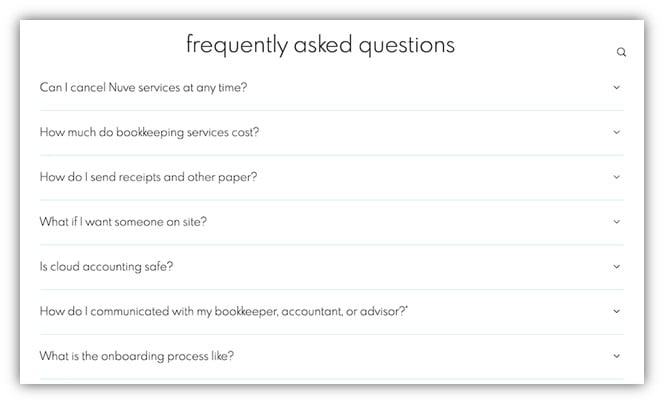
This cloud accounting service distilled the top questions into a relatively short–yet still comprehensive–list.
3. Structure your question list
Now it’s time to map out how your list will look on the page. When you think about organizing your list, keep your audience’s needs top of mind.
Start with those questions that are genuinely asked most frequently. The questions at the top of the page should appeal to the broadest swath of your audience. For a retailer, questions about business hours or shipping information, for example, will be relevant to any consumer.
If your list is long, consider grouping it into categories for ease of scanning. A healthcare facility might create sections like “scheduling and canceling appointments” or “insurance and billing.”
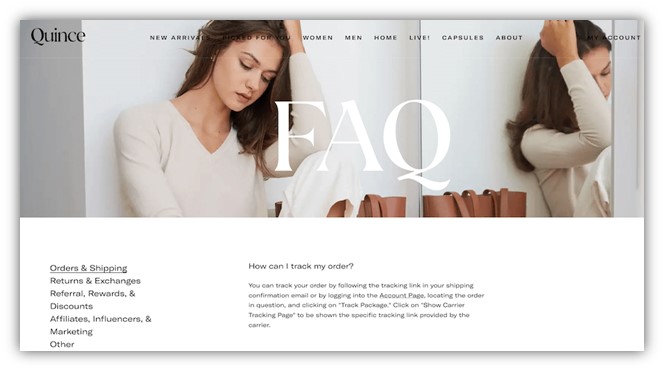
This online retailer grouped FAQs into sections you can jump to.
4. Design the FAQ page with SEO in mind
Now that you know how you’d like your page to be structured, it’s time to design the page and incorporate the content with an eye toward SEO.
This starts with keyword research. In recent years, Google and other search engines have moved toward semantic search. Essentially, their systems are more sophisticated today and can now understand phrases and sentences, rather than just individual words.
Semantic search is why you see the responses you want when you type something like, “How late is Whole Foods open?” into Google.
FAQ pages can use semantic search to their advantage. By incorporating keywords into your questions, your business is more likely to rank in relevant queries.
Returning to the example from fresh above, you’ll notice that each of the questions under their product information header includes their brand name in the question. It doesn’t read, “What is your position on animal testing?” Instead, it says, “What is fresh’s position on animal testing?”

That is likely an intentional SEO-minded move. Including the brand name in the question means fresh’s FAQ page is more likely to rank as the first result on Google when a consumer types “does fresh use animal testing” into the search engine.
5. Don’t forget about the user experience
You must consider SEO in designing your FAQ page, but you never want to forget your all-important human audience. Consider incorporating the following elements into your FAQ page to make it easier for consumers to navigate the page.
Many FAQ pages allow visitors to click on a question and retract it once they’re done reading the answer. Design elements like this help your audience quickly scan the complete list of questions on your page.
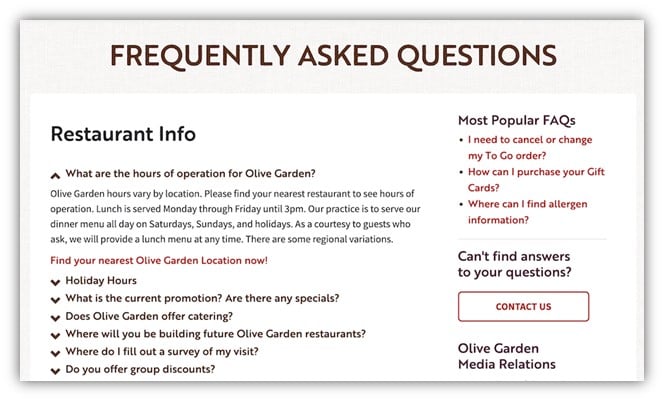
Also, include your FAQ link in the footer of your website. It’s common practice in website design for FAQ links to reside in the footer, so consumers will beeline there when searching for the link. Meet their expectations by including the FAQ link in the footer.
Examples of FAQ pages across industries
FAQ pages are not just for consumer brands. Any business, from a college to a healthcare facility, can benefit from a well-crafted FAQ page. Here are a few FAQ page examples.
Retail, grocery, and furniture FAQ page example
You’ve already seen some examples from Fresh cosmetics’ FAQ page. The brand also includes its customer service phone number and email front and center, signaling that hands-on customer service is a hallmark of the brand.
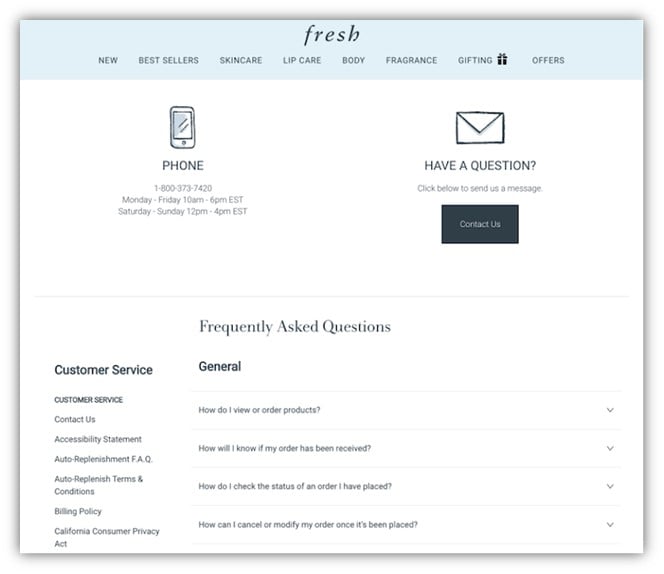
Whole Foods Market has a robust FAQ page, with a list of clickable topics on the righthand side, allowing viewers to drill down into categories before scanning through for questions.
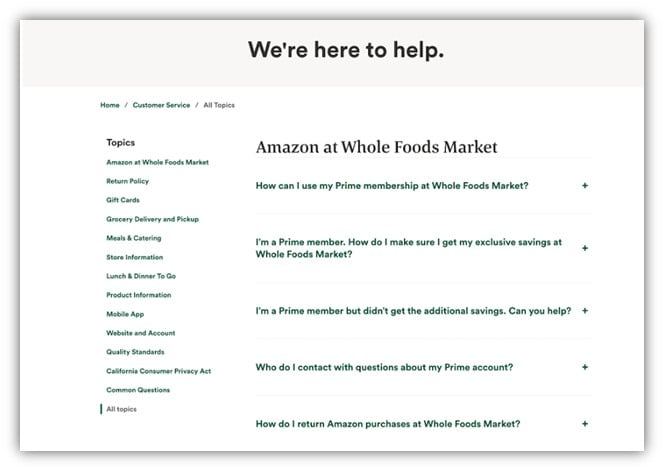
Auto FAQ page example
Unlike a grocer or retailer, a business in the automotive industry deals with the complexities of a larger purchase–namely, a vehicle. Not only are cars more expensive in and of themselves, but there are additional questions around warranties, insurance, and financing that arise in the buying process.
CarMax has created an FAQ page with icons that make it easy for consumers to find the list of questions most relevant to their place in the customer journey.
There’s the “finding a car” section for those who are just starting their search. If consumers are closer to making a final purchase, they may wish to read the financing or warranties sections.
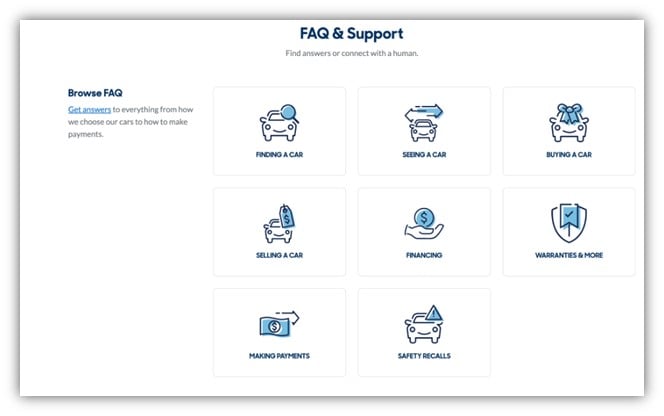
Once a reader clicks on one of the icons, they reach a list of relevant questions. Below is an example of the financing page. This FAQ page covers the most pertinent questions and includes contact information for customer service if the reader has follow-up questions.
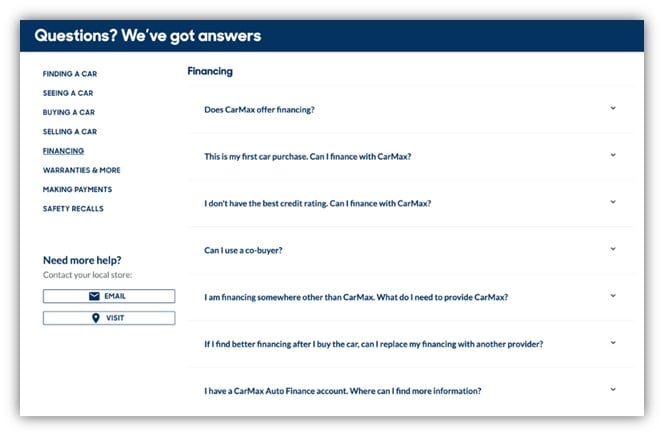
Healthcare FAQ page example
Healthcare is another industry that requires more customer education. And with this audience likely feeling unwell or concerned about their health, it’s vital to provide a top-notch user experience.
CityMD, an urgent care provider in the tri-state area, provides users with a dropdown menu at the top of the page so that they can easily navigate directly to the most relevant subset of questions.
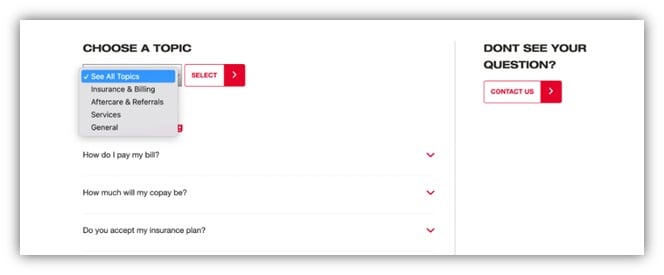
The answers provided are brief, and each includes a link to a relevant page on the website with more detailed information.
Recruitment FAQ page example
Some businesses serve multiple audiences. Recruiting firms, for instance, must cater to job seekers and organizations looking to fill roles.
Recruitment firm Robert Half addresses these two audiences in its footer, where it has separate FAQ pages for each audience: employers and job seekers.
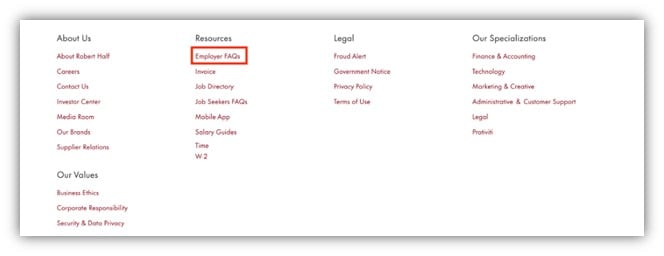
When you click through to either page, you see the list of relevant FAQs. Additionally, both pages include a link to the other page. Any jobseeker that ended up on the employer page in error can easily find their way to the right spot–and vice versa.
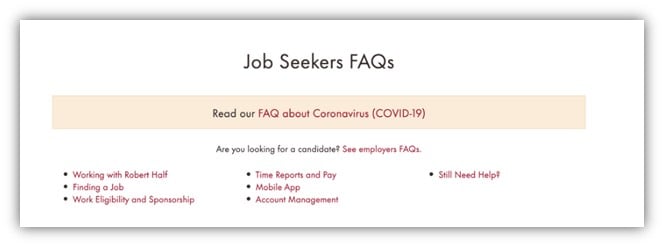
Did we answer all your FAQs with this page?
Regardless of the industry in which you operate, there is great value in establishing an FAQ page on your website. Take the time to craft a detailed list of questions, and lay them out in a way that appeals to both your audience and search engines.
Creating a thoughtful FAQ page reduces friction in the selling process, frees up your salespeople’s time, and helps your page rank higher on Google. With so many benefits to be found in setting up one extra page on your site, it’s well worth the effort!

